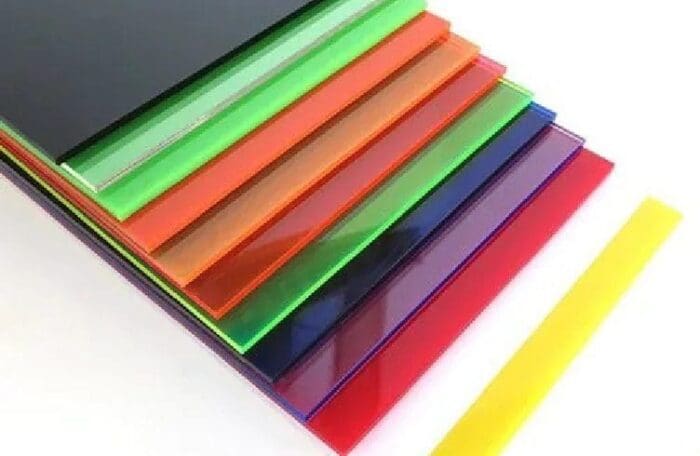

Do you need plastic fabrication services? Then, one of the first decisions you must make concerns the material used to make your products. When you have to choose between Perspex vs. acrylic vs. polycarbonate, you stop and wonder. What are the differences between these materials? And is polycarbonate the same as acrylic – so why compare them?
Your indecision is understandable. As plastic fabrication experts, at BCJ we work with these materials on a daily basis, and we know which one is suitable for a specific product. In this article, we will explain the differences between Perspex, acrylic and polycarbonate, showcasing their key features and the most common applications they are used for.
Perspex vs. Acrylic
Let us start with the first comparison – Perspex vs. acrylic. Technically speaking, they are the same thing, as Perspex is the best known trade name for acrylic. However, it is a premium type of acrylic, offering the highest benefits and special features for specific customer requirements.
All types of acrylic have the following characteristics:
- Good thermal stability, ideal for casting in various shapes and reworking the material
- 17 times the impact resistance of regular glass
- Half the weight of glass
- High resistance to scratching
- Excellent transparency
- Resistance to a wide range of chemicals.
In addition to these general characteristics, Perspex offers the following benefits:
- Rich, vibrant colours
- Glows under ambient lighting
- A wide range of finishes – matte, pearlescent, colour shift
However, in deciding between Perspex vs. acrylic, you need to remember that Perspex is only suitable for indoor applications, such as firm signage, furniture, architectural elements, partitions and lighting effects.
Acrylic, although lacking some of the premium features of Perspex, can be used outdoors between temperatures of -40º Celsius and +80º Celsius. Some common applications include medical and life sciences accessories and furnishings and testing containers for food and beverages.
Polycarbonate vs. Acrylic
Now then, why do we have the polycarbonate vs. acrylic comparison? Aren’t they the same thing? The answer is no. While all plastics may look the same to you, they have different chemical compositions and they are designed for various uses.
Thus, we have to discuss the differences of polycarbonate vs. acrylic. So far, you know some of the key features of acrylic. It is an excellent replacement for glass in terms of resistance to impact and low weight and can be made in a wide range of colours. In addition, acrylic can be polished to a shiny finish, suitable for the sleek design trends of modern homes, offices and commercial centres.
Polycarbonate is the bigger and stronger brother of acrylic. Its top features are:
- 30 times the strength of acrylic
- Resistance to chipping and cracking
- Resistance to corrosion
- Can be formed without heating
- It has a low level of flammability – the working temperature is 240º Celsius
As a result of these special characteristics, polycarbonate can be as much as 25% more expensive than acrylic. Some specific applications for this material are:
- Devices and furnishings used in chemical applications
- Bullet resistant surfaces
- Security glazing
- Machine guards
However, polycarbonate cannot be polished to a smooth finish and is not UV resistant, unlike acrylic.
Therefore, now you can answer yourself the question: is polycarbonate the same as acrylic? Polycarbonate is a more specialised material than acrylic, more expensive and required for special applications where its key characteristics are necessary.
Ending the polycarbonate vs. acrylic debate, we may add that acrylic offers you higher versatility in terms of colour and finish, being more suitable for applications where aesthetics and visual appeal are important.
Find the Right Plastic for Your Project at BCJ Plastic Products
Even after reading this article, you may still need assistance in choosing between Perspex vs. acrylic vs. polycarbonate. First of all, you do not want to spend too much on specialised materials whose characteristics are not necessary for your products.
The team of experts at BCJ is ready to help you make the adequate selection for your project. We know all the pros and cons of each material and our purpose is to build a strong and lasting relationship with our clients.
Thus, if you are looking for plastic fabrication experts in Perth, choose BCJ. Get a quote online or call us on (08) 9353 3477 for professional advice and service.


Custom Plastic Equipment in the Medical Industry: Solutions for Healthcare
Read article

